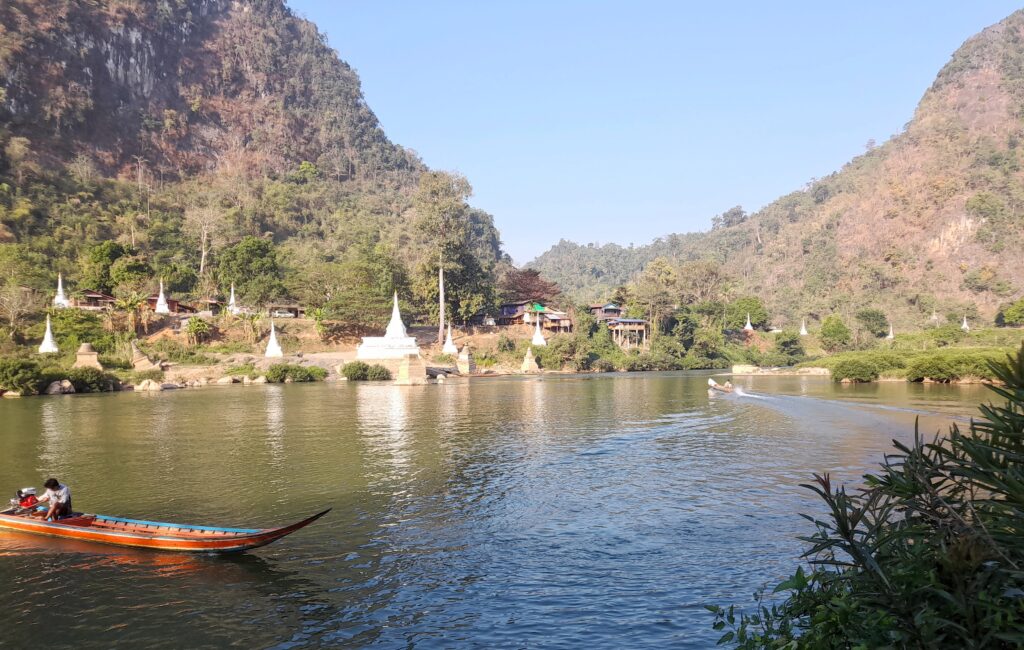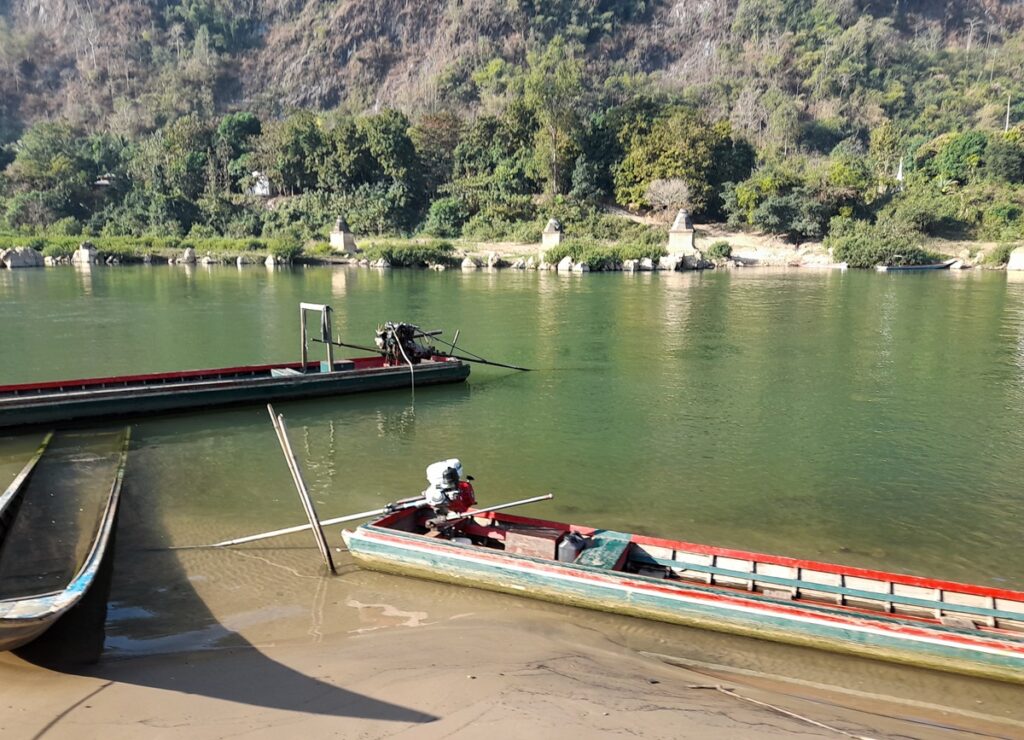X: @sahanasometimes
In a revelation that sheds a stark light on the challenges faced by migrant workers in Sri Lanka, the ministry of Labour and Foreign Employment of the island nation has brought attention to a distressing situation unfolding near the Thailand-Myanmar border.
The plight of 50 youths both male and female from the Island nation are being held against their will in a camp located about 25 kilometers from Myawaddy city in Myanmar, which is firmly controlled by a terrorist group.
These young Sri Lankans embarked on a journey to Myanmar seeking permanent employment through unconventional means by using visit visas, bypassing the Sri Lanka Bureau of Foreign Employment (SLBFE)’s registration process in order to explore job prospects abroad. The Ministry clarified that these individuals undertook this journey independently without any organized facilitation.
According to ministry officials, this unconventional migration, coupled with the involvement of a terrorist organization, poses significant barriers to direct intervention.
Sources within Sri Lanka’s diplomatic circles stationed in Myanmar have hinted at diplomatic negotiations initiated with Myanmar’s Minister of Home Affairs to secure the release of detained Sri Lankans, Janaka Bandara, Sri Lanka’s Ambassador to Myanmar, confirmed these ongoing discussions, emphasizing the seriousness of the situation.
They were Initially tempted by the allure of promising IT jobs in Thailand, leading them to travel there with tourist visas. However, they were allegedly sold into cyber slavery upon arrival. Tasked with impersonating women on social media platforms to execute online scams, these captives faced both physical and psychological mistreatment.
Victims speaking to local news channels unveiled chilling narratives of being confined, enduring relentless hours engaged in online scams, and facing ceaseless threats of violence.
they were deprived of basic necessities and subjected to beatings if they failed to meet specific targets or quotas.
Gruesome reality of cyber slavery in south east Asia
The internet landscape worldwide faces an escalating menace posed by organized criminal factions operating throughout Southeast Asia.
Amidst economic struggles and limited prospects, opportunistic brokers entice prey with attractive job offers, manipulating vulnerable individuals. Collaborators further this exploitation by facilitating illegal border crossings, amplifying the underground trade of human resources.
These groups, ousted from China due to stringent crackdowns on domestic crime, have established strongholds in countries like Myanmar, Laos, and Cambodia. They harness a network of trafficked individuals, dubiously labeled “cyber slaves,” to execute intricate online scams and financial deceit, amplifying their global impact.
The extensive influence of Chinese exiles transcending borders and the concerning expansion of criminal operations is underscored in a detailed report (2023) from the United States Institute of Peace (USIP).
The insidious operations, popularly termed as ‘pig butchering,’ target vulnerable individuals globally, baiting them with false promises of love and companionship.
Yet, this deceitful web leads to financial exploitation, leaving victims staggering from substantial financial losses, some even reporting losses upwards of $1 million.
Mostly comprising young, computer-literate, and multilingual individuals, victims fall prey to these schemes through varied channels: from unsolicited messages to seemingly alluring online advertisements. Red flags for these job offers often surface in the form of unreasonably high salaries with ambiguous responsibilities, coupled with promises of complimentary travel and accommodation.

The Humanity Research Consultancy (HRC) underscores the pressing need for heightened public and governmental awareness regarding this alarming issue. Their extensive research illuminates a global spectrum of victims originating from diverse countries worldwide. While the orchestrators and victims predominantly hail from China, the sinister operations span across Southeast Asian nations like Cambodia, Myanmar, Laos, the Philippines, as well as destinations in South Asia, Africa, and the Middle East. The lucrative English-speaking demographic is increasingly sought after by these criminal syndicates, aimed at targeting larger, more profitable global audiences.
Cambodia and Myanmar serve as operational hubs for these illegal activities, capitalizing on lax law enforcement and pervasive corruption, enabling these compounds to operate with impunity.
Myawaddy, once a tranquil farmland near the Thai border, now reveals a disturbing reality, as satellite imagery discloses. According to New York Times 2020 reports, this very area has undergone a rapid metamorphosis, emerging as a focal point of cybercrime activity allegedly supported by Van Kuk Koi, famously known as “Broken Tooth,” the leader of the notorious Fourteen K Triad. Numerous global news sources corroborate Koi’s involvement, attributing the proliferation of analogous cybercrime hubs in Myawaddy to his investments, resulting in the entrapment of countless unsuspecting victims.
Efforts to combat this pervasive issue face an uphill battle, with China’s categorization of illegal border crossers as criminals hindering recognition of scammed individuals as victims of human trafficking. The Humanity Research Consultancy emphasizes the crucial role of foreign embassies in securing the release of their nationals, urging closer engagement as direct negotiations with local authorities often ends up with unproductive outcomes.
In parallel, financial institutions face a call for heightened vigilance in detecting suspicious payment patterns, often funneled through cryptocurrencies, a tell-tale sign of these scams.
Crucially, a potential solution lies in dismantling domestic trafficking networks in origin countries, pivotal players in recruitment and dispatching individuals for such perverse activities. Governments targeting these networks could pave the way for substantial progress in combating this intricate web of exploitation.
Concurrently, reports from the Shan Human Rights Foundation (SHRF) resonate with similar distressing accounts, shedding light on Myanmar’s citizens coerced into online scams, amplifying a narrative steeped in deceit, corruption, and violence. Chinese criminal gangs, operating with tacit approval from local authorities, perpetrate these exploitative activities, trapping individuals in a dark realm of cyber scams, gambling, and forced pornography involvement.

SHRF’s revelations underscore a surge in illicit operations within the Mekong region, propelled by pandemic-induced online gambling and economic instability, exacerbating vulnerabilities among the unemployed, leading to coercion into cyber scams. The UN Office of the High Commissioner for Human Rights echoes this gravity, citing hundreds of thousands ensnared in online criminal activities across Southeast Asia.
The report uncovers disturbing instances of victimization, detailing cases of severe physical abuse, sexual exploitation, and tragic suicides, emblematic of the heinous coercion tactics employed. Local armed groups, like the Kokang Militia Force, reportedly guard these scam centers, fostering an environment of intimidation and fear, silencing victims’ voices.
SHRF vehemently urges authorities to take decisive action against these criminal networks, holding them accountable for the trauma inflicted upon their enslaved victims.



clomid cost can i buy clomiphene price how to buy generic clomiphene pill clomid sleep apnea can i order generic clomiphene without rx generic clomiphene pill can you get cheap clomid prices
Greetings! Jolly gainful recommendation within this article! It’s the scarcely changes which will obtain the largest changes. Thanks a portion towards sharing!
The thoroughness in this piece is noteworthy.
zithromax for sale – order tinidazole 500mg flagyl price
buy rybelsus 14 mg online cheap – order cyproheptadine 4mg generic periactin 4mg without prescription
inderal 20mg drug – buy clopidogrel generic purchase methotrexate generic
buy clavulanate generic – https://atbioinfo.com/ where can i buy ampicillin
order esomeprazole online – anexa mate esomeprazole price
buy generic coumadin online – https://coumamide.com/ brand hyzaar
cheap deltasone 10mg – corticosteroid cost prednisone 10mg
best ed medication – https://fastedtotake.com/ buy ed pills no prescription
amoxicillin cost – combamoxi.com buy generic amoxicillin online
order diflucan 200mg online – diflucan canada order fluconazole pill
buy cenforce generic – this order cenforce 50mg without prescription
max dosage of cialis – cialis with dapoxetine 60mg where can i buy cialis online in australia
tadalafil best price 20 mg – on this site cheap cialis online overnight shipping
ranitidine without prescription – generic zantac buy zantac 300mg online cheap
best site order viagra – https://strongvpls.com/ cheap viagra super
With thanks. Loads of conception! synthroid para que sirve en hombres
This is the gentle of writing I rightly appreciate. https://buyfastonl.com/isotretinoin.html
Facts blog you possess here.. It’s hard to assign great quality belles-lettres like yours these days. I honestly appreciate individuals like you! Rent vigilance!! https://ursxdol.com/get-metformin-pills/
This website really has all of the tidings and facts I needed adjacent to this case and didn’t identify who to ask. on this site
More content pieces like this would make the интернет better. https://ondactone.com/simvastatin/
Thanks for putting this up. It’s well done.
nexium capsules
This is the gentle of scribble literary works I positively appreciate. http://wightsupport.com/forum/member.php?action=profile&uid=21397
order forxiga without prescription – forxiga online forxiga tablet
With thanks. Loads of conception! http://ledyardmachine.com/forum/User-Pacpcd
You can protect yourself and your stock by way of being heedful when buying prescription online. Some pharmaceutics websites manipulate legally and offer convenience, privacy, rate savings and safeguards as a replacement for purchasing medicines. buy in TerbinaPharmacy https://terbinafines.com/product/crestor.html crestor
More posts like this would create the online time more useful. fildena français
More posts like this would persuade the online space more useful.
Khám phá thế giới giải trí trực tuyến đỉnh cao tại MM88, nơi mang đến những trải nghiệm cá cược thể thao và casino sống động.
苹果签名,苹果超级签平台,ios超级签平台ios超级签苹果企业签,苹果超级签,稳定超级签名
iwin – nền tảng game bài đổi thưởng uy tín, nơi bạn có thể thử vận may và tận hưởng nhiều tựa game hấp
betmgm Connecticut betmgm-play betmgm DC
This fast-growing collective casino, wow vegas casino , focuses on high-quality slots and unselfish commonplace login rewards. Players appreciate the free-to-play constitution that still allows redeeming Sweepstakes Start wins with a view money or gift cards.
Feel the heartbeat of high-energy casino action. In crown coin casino, instant win games deliver quick thrills. Pulse with excitement now!
Sweet Bonanza brings the party to your screen with vibrant graphics and high-reward gameplay. Land best casino for sweet bonanza scatters, activate bombs, watch your balance grow. The fun never stops!
Experience the raw power of the American wilderness in slot form. buffalo aristocrat packs wild symbols, scatter sunsets, and retriggering free games for unbeatable action. Join the rush and win big!